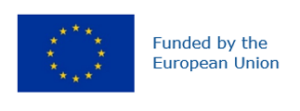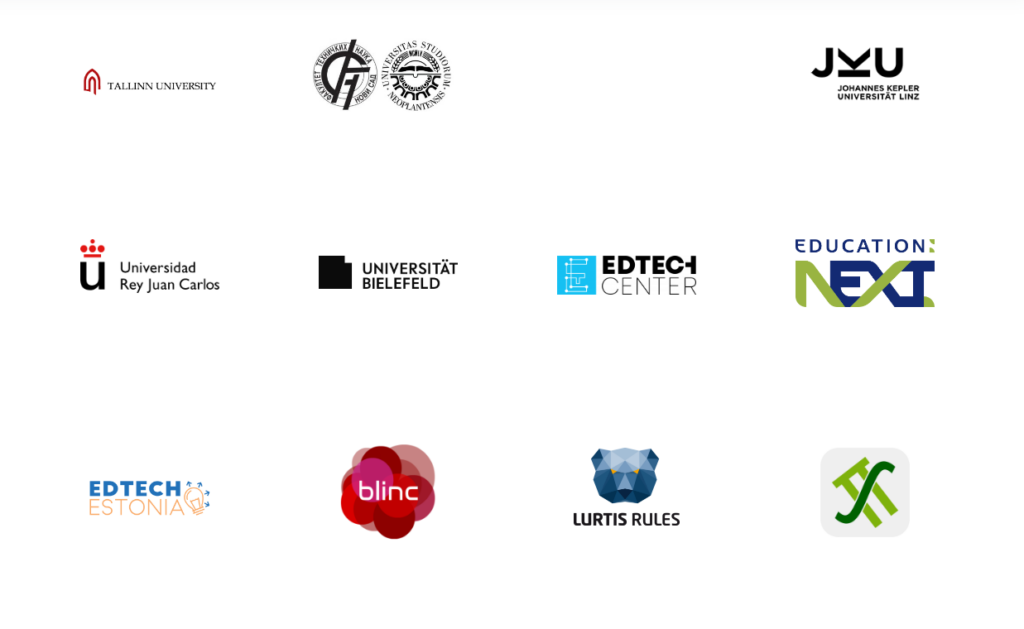
About the project
The goal of the EdTech Talents project is to strengthen collaboration between the academic and non-academic communities, with a focus on establishing public-private partnerships, intensifying private sector involvement, and promoting the transfer of research knowledge into business domains. Additionally, the project includes activities that foster closer cooperation between the business sector and educational institutions to support innovation growth.
The project encompasses two key activities:
1. Visits by researchers and their teams from developing countries (Estonia, Hungary, Serbia) to EdTech companies and consulting firms in Austria, Germany, and Spain to learn ;
2. Visits by researchers from advanced countries (Austria, Germany, Spain) to share their relevant intellectual capital with EdTech startups in developing countries (Estonia, Hungary, Serbia).
During this process, knowledge transfer is facilitated through dedicated mentorship and training aimed at establishing a continuous and significant flow of innovations, ideas, knowledge, expertise, and relevant services.

Context
In various educational technology (EdTech) research efforts since 1990, the emphasis has been on preparing teachers and technical experts for the job market, rather than preparing professors and researchers to contribute their expertise to the EdTech sector or to establish their own EdTech spin-off companies. Additionally, the explosive growth of EdTech startups places a significant responsibility on researchers to ensure that these companies, through interdisciplinary evidence-based research, develop products that align with learning theories and local curricula, while also being user-friendly and easy to implement in classrooms. Numerous studies have shown that most teachers reject technological innovations during trial phases because neither teachers nor students find them useful, or the products simply do not function as expected.
Simultaneously, most EdTech companies prioritize securing investments for innovations, with less emphasis on the pedagogical objectives of their services. Unfortunately, the current demand within the Estonian, Hungarian, and Serbian EdTech sectors for purchasing knowledge services from local universities is very low. Similarly, universities’ readiness to provide these highly valuable educational services is also very low. Facilitating talent circulation between sectors and fostering collaboration between academia and business for knowledge transfer requires systematic and structured efforts. Considering all these factors, this proposal aims to find solutions to current challenges at the individual, institutional, and ecosystem levels in the innovation of EdTech.
Meetings of researchers from developed countries with the EdTech community in Serbia
The methodology of researcher visits from developed countries under the EdTech Talents project is based on experts from the academic community mentoring 1-3 EdTech startups during each period. Each period will involve selecting new startups for consultations, preceded by online consultations and a preparatory phase.
Actual mobility of researchers to EdTech companies in developing countries will depend on the current and real needs of the companies.
The task of the EdTech organization is to promote the project and target the most relevant EdTech companies in the local community, including schools, the academic community, institutional representatives, and the IT industry.
According to the methodology, the organization of visits by researchers from developed countries is facilitated through Estonian, Hungarian, and Serbian EdTech umbrella organizations.
The mentor-researcher and EdTech company will work in accordance with research questions. These research questions may include product or service testing, validation of product/service alignment with learning theories or curricula, designing or adopting user surveys, etc. Researchers will collaborate with EdTech companies through mentoring. On one hand, researchers will consult EdTech companies by sharing their expertise in specific areas and performing tasks related to research questions. On the other hand, open seminars and workshops will be organized upon the request of the entire local EdTech community.
Given that the goal of these professional visits is to support EdTech companies in further developing their products and services, feedback will be provided immediately after each visit and again after 6 months from EdTech companies on how this mentoring service has supported the development of their companies. It is expected that these visits will encourage EdTech companies to start purchasing knowledge services from academic institutions for validation and further development of their products/services.
Partneri na projektu
Partners on the project are:
Universities
- Univerzitet u Talinu
- Fakultet tehničkih nauka, Univerzitet u Novom Sadu
- Obuda Univerzitet, Mađarska
- Univerzitet Johan Kepler Linc, Austrija
- Univerzitet rej Huan Karlos, Madrid, Španija
- Univerzitet Bielefeld, Nemačka
Umbrella EdTech organizations
- EDUCATION:NEXT, Mađarska
- Centar za obrazovne tehnologije Zapadni Balkan, Srbija
- EdTech Estonia
Companies


